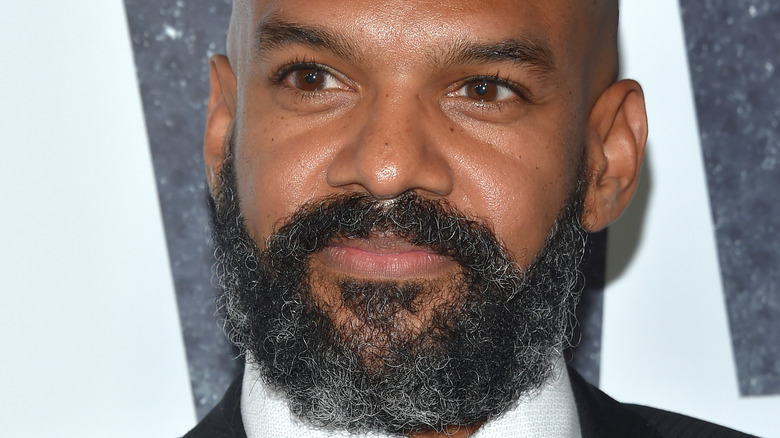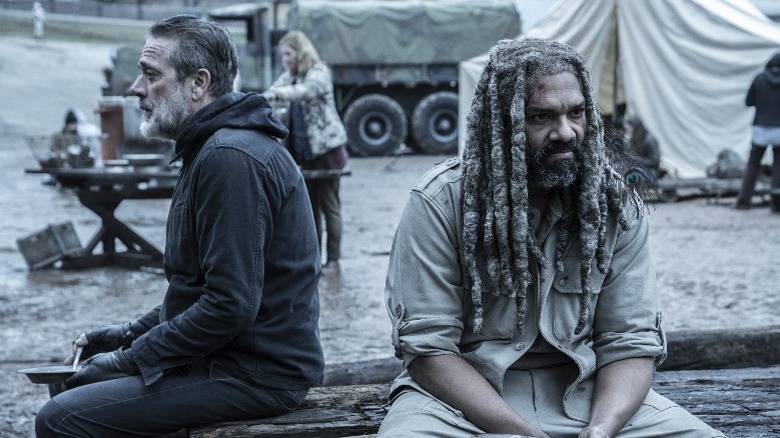The Walking Dead's Khary Payton Weighs In On Ezekiel's Big Confrontation In Season 11 Episode 21
Contains spoilers for "The Walking Dead" Season 11, Episode 21 — "Outpost 22."
For a decade and some change, AMC's "The Walking Dead" has been the source of passionate popularity as well as controversy. Brutal deaths have always populated the series, many times deviating away from the source material of Robert Kirkman's graphic novel. But one character that has blessedly avoided the chopping block is Ezekiel (Khary Payton). Though he was one of Alpha's victims in the comic, Ezekiel continues to persevere in the series — even surviving a bout of cancer. He is unequivocally a favorite character and continues to be a guiding light during the absence of leaders Rick (Andrew Lincoln) and Michonne (Danai Gurira).
Ezekiel's integrity and principles were no more evident than in the recent episode "Outpost 22." Many characters have had their chance to air their grievances against the best villain of "The Walking Dead," and this season, Ezekiel finally gets his chance. Ezekiel's conversation with Negan (Jeffrey Dean Morgan) is not about physical torture or deaths but one crime that had yet to be addressed.
Negan's crimes against women needed to be addressed
Since Negan's most brutal offense against Glenn (Steven Yeun), he has been on a long road to redemption. Enduring years of imprisonment as well as earning back the trust of every single person in Rick's community, it hasn't been an easy road. And nor should it be. He has many things to atone for. But one crime, in particular, has slid beneath the radar all these years. Not only was Negan a remorseless murderer, but he also hurt fellow Saviors. How quickly many have forgotten that Negan claimed multiple women against their will and forced them into marriage with him. But as Khary Payton pointed out to CBR in an exclusive interview, Ezekiel cannot forget such a violation.
"I think it was important to address because ... putting irons on people's faces and beating them with a bat, those are devastating and flashy, but it's that mental freedom that is taken away that I think so many people can identify with, you know?" Payton noted. "It shows Ezekiel's leadership qualities because a true leader is always thinking of others and trying to understand other people's perspectives." But Payton added that in addition to clarifying Ezekiel's character, it was also significant to show men supporting women.
"It's important as men that we acknowledge that these things are happening because women feel seen," the actor continued. "I think that's why it kind of struck a chord with people."

